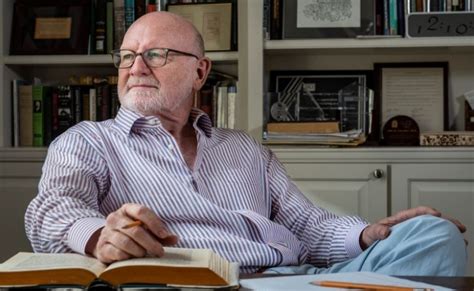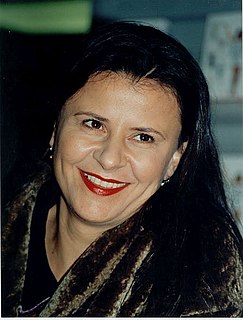A Quote by George Vecsey
Hockey historians say the handshake dates to English settlers in Canada, who preached an upper-class version of sportsmanship in the 19th century. Soon, tough kids in urban and prairie rinks began imitating imagined dukes and earls of the old country.
Related Quotes
It's a historical thing, up to the 19th century the English hated the French. Then in the 20th century the English started to hate the Germans - as we began to move alphabetically through the map of the world. Now, the year 2000, we are fine with the Germans... but the Hungarians are pissing us off.
About 4000 men, women and teenagers regularly venture out to play a game in -20 weather and stinging prairie winds. Bundled in sweaters and snow suits, balaclavas on their heads and suction cupped shoes on their feet. They slip and slide across the outdoor hockey rinks chasing a soft rubber puck in the Sponge Hockey Capital of the World.
And that is true in 85 percent of kids; it's kids who live in old, dilapidated, mostly urban housing. But that still leaves 15 percent of the cases that occur in middle- or upper-class families, usually associated with home renovations. People are sanding paint, removing banisters, cleaning up windowsills, and they don't realize that they're spewing lead dust around in the house. And then the kids get it.
I think that Indian writing in English is a really peculiar beast. I can't think of any literature - perhaps Russian literature in the nineteenth century comes close - so exclusively produced by and closely identified with a tiny but powerful ruling elite, the upper-caste, Anglophone upper middle class, and dependent for so long on book buyers and readers elsewhere.
In the 19th century, the English were loathed. Every memoir that you read of that period, indicates the loathing that everybody felt for the English, the only difference between the English and Americans, in this respect, is the English rather liked being loathed and the Americans apparently dislike it intensely.
George Bush is by American standards rabidly Upper Class - Eastern, Socially Attractive, WASP, 19th-century money, several generations of Andover and Yale (and, while we're at it, his father, George H. W. 'Poppy' Bush, was a former president and his grandfather was the Nazis' U.S. banker in the 1930s).
When the Democrats are attacked for [inciting class warfare] they shrink back. They don't say what obviously should be said, "Yes, there is class warfare. There has always been class warfare in this country." The reason the Democrats shrink back is because the Democrats and the Republicans are on the same side of the class war. They have slightly different takes. The Democrats are part of the upper class that is more willing to make concessions to the lower class in order to maintain their power.



































